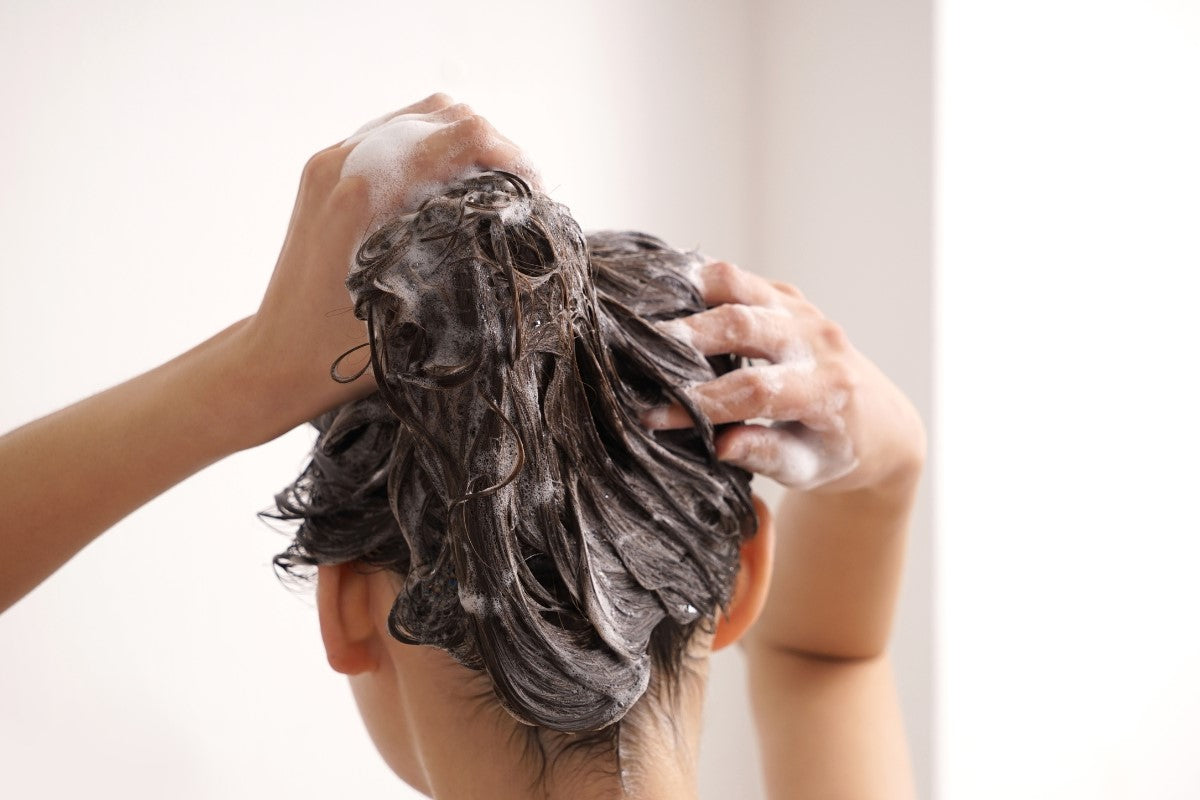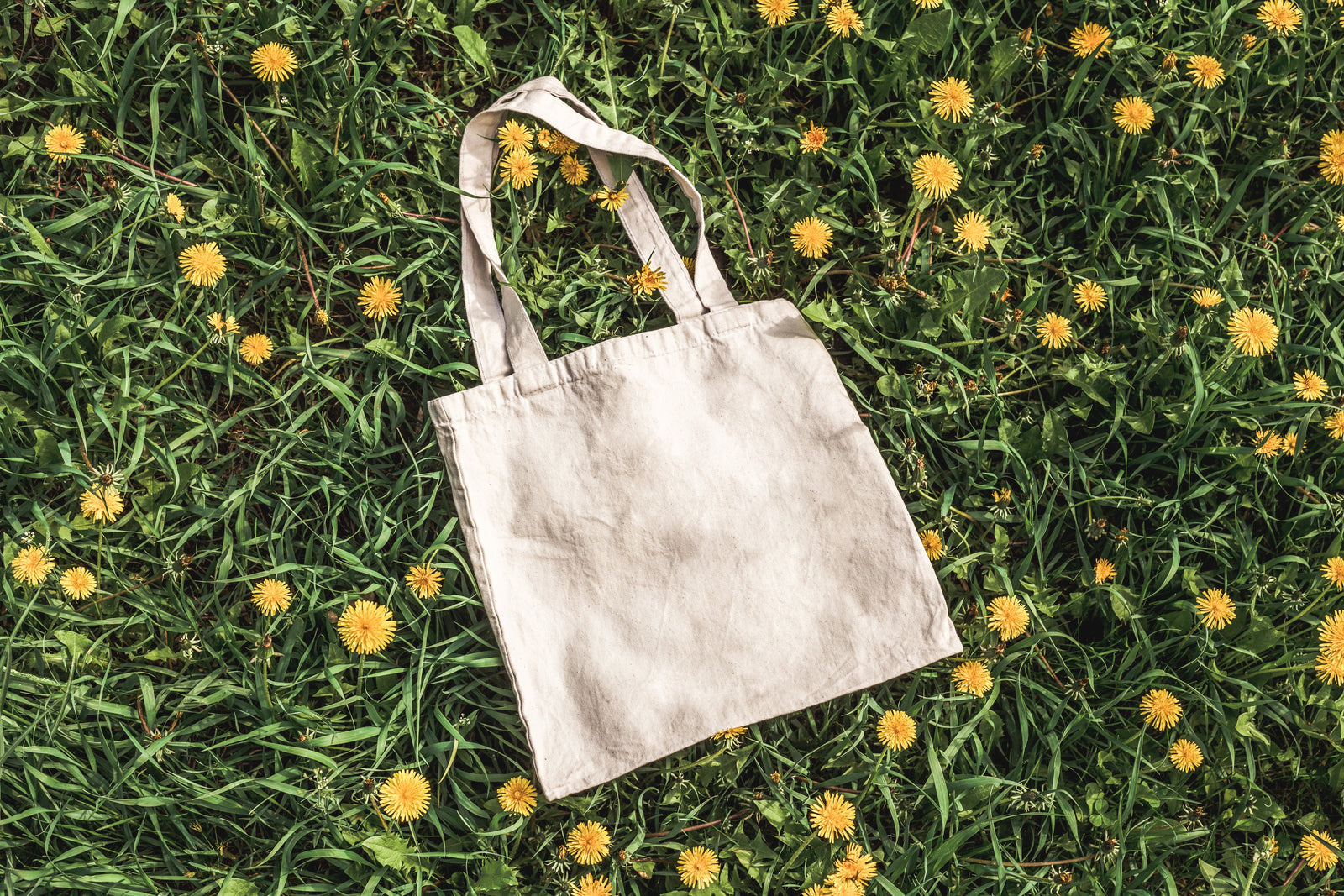With the cold season comes picturesque snowy landscapes and the joy of winter activities, but also, challenges for our precious locks.
Much like our skin, our hair and scalp require a bit more attention when temperatures drop. To guide you in adopting a winter hair care routine with ease, we've enlisted the expertise of Sylvie Boulet, a hairstylist with over 37 years of experience, for whom beauty and nature go hand in hand.
In this blog post, she shares her top tips for maintaining healthy hair, even in winter!
How Does Winter Affect Our Hair and Scalp?
With the cold, heating, reduced humidity, friction with hats and coats, lack of sunlight, less active blood circulation, and frequent hat-wearing, our hair can become drier, duller, and more brittle in winter. Some people may also experience increased hair loss, scalp itching, and dandruff issues.
Sylvie emphasizes that depending on our skin and hair type, we don't all develop the same type of dandruff. It's essential to recognize them correctly to tailor our care:
"Some people have dry dandruff, which falls on our shoulders like snow. They are usually caused by inadequate hydration of the scalp, too frequent washing, or the use of very hot water in the shower."
"Others suffer from oily dandruff. These appear when the scalp is oily, impurities are not properly removed, creating a clogging of the pores, and eventually itching. When scratched, these dandruffs, recognizable as they tend to stick to the hair, often indicate the use of an inadequate shampoo or too frequent washes that overstimulate the sebaceous glands," she explains.
How to Adjust Our Hair Care Routine in Winter?
For Sylvie, our scalp is like a plant's soil. To get healthy hair, you need to nourish it, water it properly, stir it up, and aerate it, especially in winter. However, to take good care of our hair and scalp, it's not necessary to change all our products or add many steps to our routine. A few simple adjustments and habits can make all the difference!
Using the Right Shampoo
The essential oils in ONEKA shampoos not only give them their aroma but also specific properties that make them more suitable for certain hair types and concerns.
Here's what Sylvie recommends to her salon clientele: "In winter, the Cedar & Sage shampoo is appreciated by people with an oily scalp and similar dandruff. The Angelica & Lavender shampoo, on the other hand, has a soothing effect and is loved by those affected by dryness."
If you suffer from scalp eczema or psoriasis, our Unscented shampoo, free of essential oils, could help relieve your symptoms.
"I also generally recommend avoiding synthetic shampoos - and other synthetic styling products - that stifle hair and the scalp by clogging pores!" Sylvie adds.

Spacing Out Your Washes
"A mistake I often notice is that people wash their hair too often. Personally, I recommend one to two washes per week, whether the hair is dry or oily! This allows natural oils to spread and nourish the hair, helping to maintain its health and hydration," she explains.
If we exercise between washes and need to refresh our hair, Sylvie recommends thoroughly rinsing our hair with lukewarm water and applying conditioner to the lengths to soften and smooth them.
Double Shampooing
This advice is important in winter but also throughout the year because double shampooing allows you to fully benefit from the properties of the product used. The first shampoo removes impurities (styling products, sweat, dirt, etc.), while the second allows the clean hair to better absorb active ingredients.
Avoiding Hot Water
While a hot shower is comforting in winter, excessively hot water has a detrimental effect as it removes the natural oils from the hair and scalp, drying them out. "I recommend using lukewarm water during washes and rinses to preserve natural hydration! And if you can, finish with a cold-water spray to close the hair follicles for more shine."
Maximizing Your Conditioner
To get the most out of your conditioner, Sylvie recommends using a product from the same family as your shampoo: "This way, you're sure they were designed to work together, and their active ingredients are the same, maximizing their benefits. So, if you use an ONEKA shampoo, also opt for an ONEKA conditioner. However, feel free to mix aromas! For example, if you have an oily scalp but drier lengths, you could combine the Cedar & Sage shampoo with the Angelica & Lavender conditioner, which is more hydrating."
How Often Should We Use Conditioner?
In winter, Sylvie recommends using conditioner with every wash and rinse. In case of dryness, you can even apply it to the roots! Once or twice a week, you can also use it as a mask by applying the product to your clean hair and leaving it on for 20 to 30 minutes before rinsing. If you suffer from significant itching, it's even possible to leave it on overnight!

Naturally Treating
Formulated with organic unpasteurized apple cider vinegar and plant extracts, our Botanical Hair Treatment is a product that Sylvie particularly loves and recommends using daily!
"Spray it generously on your lengths and scalp after applying conditioner during washes and rinses. You can also use it on dry hair for instant shine. This treatment stimulates blood circulation in the scalp, acting as a purifying agent that helps control oily dandruff and soothe itching. It also promotes hair growth, controls frizz, and facilitates detangling."
"To perfect your hair care routine, don't hesitate to apply a few drops of oil to your ends to seal in moisture."

Not Neglecting the Importance of Brushing
Have you ever heard the grandma’s adage recommending a 100 hairbrush strokes per day for healthy hair? According to Sylvie, this old tip is not so far from reality!
"Of course, it's not necessary to count up to 100, but establishing a daily brushing routine, which I like to call 'hygiene brushing,' is an often-underestimated habit. The benefits are numerous! This simple gesture stimulates blood circulation, removes environmental impurities and residues of styling products, spreads sebum on the lengths for shine and flexibility. As a bonus, it could even help extend the time between your washes!"
Using Heat Sparingly
Excessive use of heat can have harmful effects on our hair, especially in winter when it's weakened, which is why blow-dryers and irons should be used sparingly.
“However, not drying your hair at the scalp promotes dandruff and can lead to fungi due to moisture. I advise drying this area with lukewarm air using a hairdryer, making sure to use the nozzle to keep the hair away from the heating element! You can then let your lengths air-dry as often as possible," says Sylvie.
Regarding the use of styling irons, she recommends not using them at full power: "I often tell my clients to reduce the heat by 10%. A lower temperature is less aggressive for the hair, preserving its long-term health."
Sylvie also warns against the excessive use of thermal protectants, often loaded with silicone. She explains that when using natural products, the hair is already protected by its ingredients, and the daily use of these protectants is unnecessary. However, she emphasizes that thermal protectants can be relevant for special events, with the recommendation to wash our hair thoroughly afterward to remove any accumulation.
Protecting Your Hair from External Elements
For outdoor activities, hats made of breathable materials or natural fibers such as wool are recommended.
To create an effective protective barrier against external aggressions, we can also take a small amount of conditioner, warm it between our hands, and then apply it to our lengths. Choosing protective hairstyles like braids can also enhance this effect, thereby limiting the risks of breakage and split ends.
It's also crucial to avoid going out with wet hair to preserve its health.
Final Thoughts
In conclusion, adopting a hair care routine suitable for winter doesn't have to be complicated! Sylvie Boulet's advice guides us with simplicity to care for our hair naturally during the cold season.
From choosing the right shampoo to the clever use of conditioner, along with simple gestures like regular brushing and protection against external aggressions, we now have the tools we need to ensure the health and beauty of our hair during the winter season.
For even more tips to take care of your hair all year long, we invite you to check out this blog post.
Who is Sylvie Boulet?
With a thriving 37-year career in the hairstyling industry, Sylvie Boulet is more than just a hairstylist. In addition to being a seasoned hair expert, she leads conferences for women, writes beauty columns, is the chief editor of her very own blog, and hosts different king of events.
She passionately shares her world of conscious beauty, seeking to inspire women to harmonize their femininity. Through her various communication platforms, she nurtures reflections on feminine beauty and well-being, offering informed advice and enriching perspectives.
Visit her website by clicking here.





